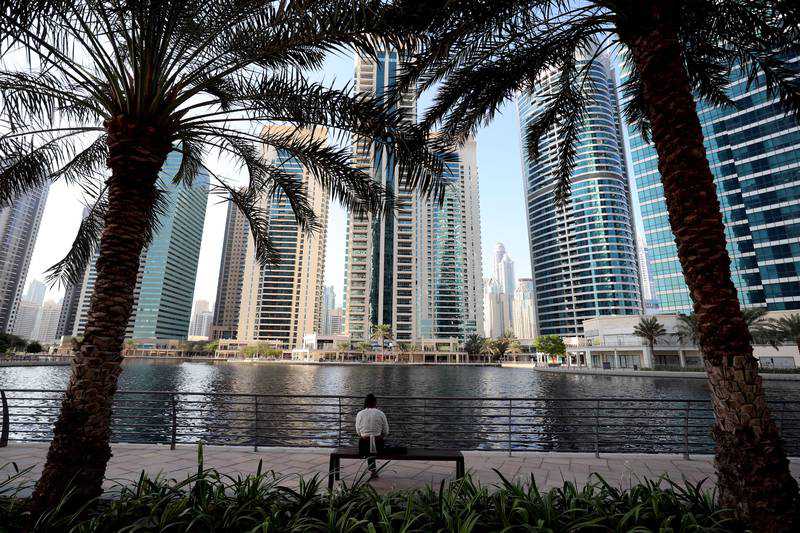Homefront: ‘Is a rent-to-own scheme better than a property mortgage?'

I’ve been trying hard to get on to the property ladder, but saving up for the deposit is taking longer than I thought and I am worried that I will miss out because prices are rising quickly in Dubai.
I have been thinking about the possibility of investing in a rent-to-own property in Dubai, but am having difficulty finding developers that offer this option. I know it was popular a couple of years ago, but is it still possible to buy a property based on this model?
Can you explain the process and if there are any risks involved? Which option is cheaper – rent-to-own or is it better to save up for a deposit and apply for a mortgage? GC, Dubai
If you are struggling to raise the initial deposit to buy a property, rent-to-own schemes, on the face of it, seem to be a viable and potentially cost-effective option. These schemes were more popular in the past but are not that common today.
This is mainly due to the fact that rental prices are rising. The Dubai Land Department launched an RTO service (Ijara) with a specific title deed register to provide a clear framework to facilitate these transactions.
RTO schemes work well when there is a stable rental market. This way, both the developer and the tenant/buyer feel they are in a win-win scenario.
If the market moves and causes rents to drop, the tenant/buyer feels they are paying too much and if rents are rising, the developer is not happy that the fixed income (rent) is set at too low an amount.
Each RTO scheme can be different from another. In simple terms, an RTO scheme is an agreement between a developer and a buyer, where the equivalent rental payments are used towards achieving the required deposit or down payment. This arrangement allows a buyer to save for the deposit or down payment.
Once the deposit money has been raised, the buyer/tenant can apply for the remaining amount via a mortgage. The payment of rent can be for three to five years or even longer, depending on the developer.
Once the time period has completed or elapsed, the buyer can decide whether to purchase the property or simply cancel the agreement. It’s important to note that if the buyer cancels the agreement, all the money paid into the scheme would be forfeited.
The rental payment is typically higher than the market rate but goes towards building the deposit.
In a fast-paced property market that we currently find ourselves in, I suspect that you might be hard-pressed to find these schemes readily available but they still exist.
Given today’s market, my advice would be to keep saving for the deposit and shop around for a mortgage as there are some great deals to be had in the market right now.
I signed a two-year rent agreement with my tenant who moved into the property in August 2021. However, I wish to sell the property now.
Can I serve the tenant an eviction notice five months into the contract, asking him to leave the property in 12 months' time? Or, am I bound by the two-year contract and can only serve notice to evict the tenant 12 months before the end of the tenancy? MH, Dubai
Law 26 of 2007 governs the relationship between landlords and tenants. Law 33 of 2008 amended some parts of the former law.
It states that if a landlord wishes to sell a property with a tenant in situ, they need to serve 12 months’ notice for eviction with reason of sale upon expiry of the tenancy agreement.
In the past, some owners decided not to wait for the expiration of their existing tenancy agreement and served the 12-month notice at any time during the lease. It would appear that judges at the Rental Dispute Settlement Committee are currently allowing this practice to go ahead.
Another scenario is when some judges may request that despite the landlord having already served notice to the tenant to vacate, the new buyer also needs to serve a separate 12-month notice. This is because you cannot currently predict whether you will eventually sell to an owner occupier/end-user or an investor, who presumably would not want the property vacant.
There are many different scenarios to this but rest assured that you ought to be within your rights to serve the 12 months’ notice now and wait to see the outcome.
The law in the UAE is not set on precedent, so each judge will decide based on the merits of the case and their interpretation of the same.
Mario Volpi is the sales and leasing manager at Engel & Volkers. He has worked in the property sector for more than 35 years in London and Dubai. The opinions expressed do not constitute legal advice and are provided for information only.
Previous Story
- Asian stocks fall on concern about virus, tighter...
- Locke to expand further into Europe with two...
- Money & Me: 'I'm not interested in money...
- Alvarez & Marsal applies for 12-month extension to...
- SoftBank-backed Tier raises $200m in funding round
- UK-based luxury sneaker retailer Kick Game secures fresh...
- Why the movie industry is a hot ticket...
- Liberty of London full-year sales take lockdown hit,...